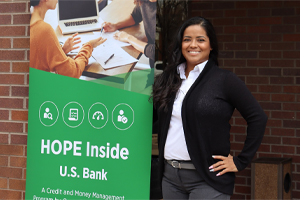
Tips for handling rising costs from an Operation HOPE Financial Wellbeing coach

Building a financial legacy for your family and community

Common pitfalls to avoid in the equipment financing process

Finance or operating lease? Deciphering the legalese of equipment finance

Buying or leasing? Questions to ask before signing a contract

Insource or outsource? 10 considerations

The secret to successful service provider integration
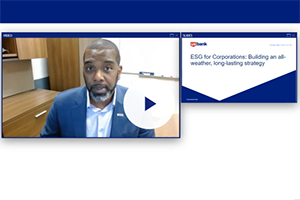
Webinar: ESG for Corporations: Building an all-weather, long-lasting strategy
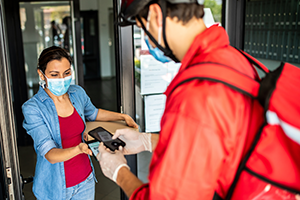
Restaurant survey shows changing customer payment preferences

Unexpected cost savings may be hiding in your payment strategy

Safeguarding the payment experience through contactless

COVID-19 safety recommendations: Are you ready to reopen?

ABCs of ARP: Answers to American Rescue Plan questions for counties

How to sell your business without emotions getting in the way

5 steps to take before transitioning your business

10 tips on how to run a successful family business

Talent acquisition 101: Building a small business dream team

Make your business legit

7 tips to help grow your business after launch

How I did it: Turned my side hustle into a full-time job

Costs to consider when starting a business

How to test new business ideas

How to get started creating your business plan

How to establish your business credit score

How to redefine challenges with business collaboration

The costs of hiring a new employee

How to expand your business: Does a new location make sense?

How to build a content team

Multigenerational household financial planning strategies

LGBTQ+ financial planning tips

Key components of a financial plan

Do I need a financial advisor?

5 financial goals for the new year

How to track your spending patterns

How to manage your finances when you're self-employed

Year-end financial checklist

Good debt vs. bad debt: Know the difference

Good money habits: 6 common money mistakes to avoid

LGBTQ+ estate planning considerations

Reviewing your beneficiaries: A 5-step guide

Estate planning documents: Living trusts vs. will vs. living will

4 reasons estate planning is important

How to talk about money with your family

Financial steps to take after the death of a spouse

6 tips for trust fund distribution to beneficiaries

How to protect your digital assets in your estate plan

How to build wealth at any age

Retirement planning in the gig economy

5 unexpected retirement expenses

How to retire happy

Key milestone ages as you near and start retirement

Retirement income planning: 4 steps to take

4 tips to help you save for retirement in your 20s

Preparing for retirement: 8 steps to take

LGBTQ+ retirement planning: What you need to know

The connection between your health and financial well-being

8 steps to choosing a health insurance plan

What is Medicare? Understanding your coverage options

3 types of insurance you shouldn’t ignore

7 things to know about long-term care insurance

Is a Health Savings Account missing from your retirement plan?

How I did it: Switched career paths by taking an unexpected pivot

Transitioning from the military to the civilian workforce
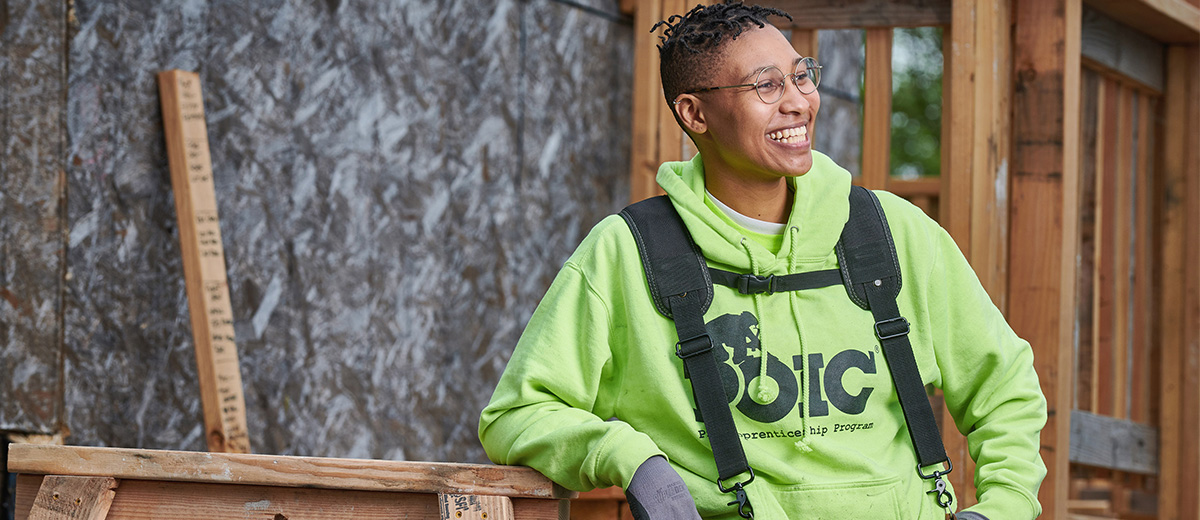
Achieving their dreams through a pre-apprenticeship construction program

Working after retirement: Factors to consider

4 steps to finding a charity to support

7 year-end tax planning tips

Should I itemize my taxes?

Do your investments match your financial goals?

Investment strategies by age

A beginner's guide to investing

Can fantasy football make you a better investor?

How to Adult: 5 ways to track your spending

Tips for navigating a medical hardship when you’re unable to work

Family planning for the LGBTQ+ community

11 essential things to do before baby comes
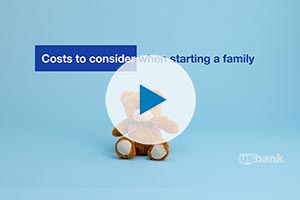
Webinar: Uncover the cost: Starting a family
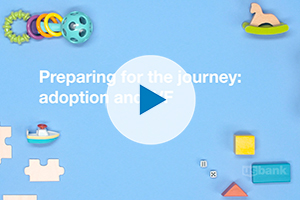
Preparing for adoption and IVF

How to plan and save for adoption and in vitro fertility treatment costs

Checklist: 10 questions to ask your home inspector

Closing on a house checklist for buyers

Resources for managing financial matters after an unexpected death

What you need to know as the executor of an estate

What documents do you need after a loved one dies?

How to prepare for a natural disaster

Checklist: financial recovery after a natural disaster

College budgeting: When to save and splurge

Student checklist: Preparing for college
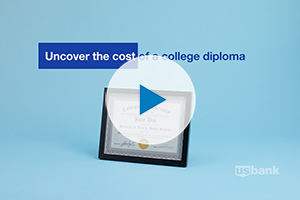
Webinar: Uncover the cost: College diploma

How to save money in college: easy ways to spend less

How to gain financial independence from your parents

The A to Z’s of college loan terms

Co-signing 101: Applying for a loan with co-borrower

Practical money skills and financial tips for college students

How to build credit as a student

5 things to know before accepting a first job offer

How I did it: Paid off student loans

Webinar: Bank Notes: College cost comparison

Annual insurance review checklist

From LLC to S-corp: Choosing a small business entity

3 ways to keep costs down at the grocery store (and make meal planning fun)

5 tips for creating (and sticking to) a holiday budget

Should you buy now, pay later?

Financial checklist: Preparing for military deployment

Friction: How it can help achieve money goals

5 things to consider when deciding to take an unplanned trip

Stay committed to your goals by creating positive habits

6 pandemic money habits to keep for the long term

Webinar: Smart habits and behaviors to achieve financial wellness

How I kicked my online shopping habit and got my spending under control

Growing your savings by going on a ‘money hunt’

Working with an accountability partner can help you reach your goals

The mobile app to download before summer vacation

How to decide when to shop local and when to shop online

A who’s who at your local bank

How I did it: Learned to budget as a single mom

Your 4-step guide to financial planning

Webinar: Common budget mistakes (and how to avoid them)

Does your savings plan match your lifestyle?

Webinar: Uncover the cost: Wedding

Webinar: Uncover the cost: International trip

What military service taught me about money management

Are savings bonds still a thing?

Tips to overcome three common savings hurdles

Adulting 101: How to make a budget plan

How having savings gives you peace of mind

Helpful tips for safe and smart charitable giving

Personal loans first-timer's guide: 7 questions to ask

3 awkward situations Zelle can help avoid

Allowance basics for parents and kids

What’s your financial IQ? Game-night edition

Webinar: Mindset Matters: How to practice mindful spending

How to save money while helping the environment

How can I help my student manage money?

How to manage money in the military: A veteran weighs in

You can take these 18 budgeting tips straight to the bank

Save time and money with automatic bill pay

How to best handle unexpected expenses

Stay on budget — and on the go — with a mobile banking app

Which is better: Combining bank accounts before marriage — or after?

Do you and your fiancé have compatible financial goals?

U.S. Bank asks: Transitioning out of college life? What’s next?

U.S. Bank asks: Do you know your finances?

U.S. Bank asks: Do you know what an overdraft is?

Personal finance for teens can empower your child

Multiple accounts can make it easier to follow a monthly budget

Is it time to get a shared bank account with your partner?

It's possible: 7 tips for breaking the spending cycle

How to save for a wedding

Here’s how to create a budget for yourself

Don’t underestimate the importance of balancing your checking account

9 simple ways to save

7 steps: How couples and single parents can prepare for child care costs

Tips for working in the gig economy

Dear Money Mentor: How do I set and track financial goals?

5 reasons why couples may have separate bank accounts

Lost job finance tips: What to do when you lose your job

Money Moments: 3 smart financial strategies when caring for aging parents

Tips to raise financially healthy kids at every age

Money management guide to financial independence

Money Moments: 8 dos and don’ts for saving money in your 30s

7 financial questions to consider when changing jobs

30-day adulting challenge: Financial wellness tasks to complete in a month

Travel for less: Smart (not cheap) ways to spend less on your next trip

Money Moments: How to manage your finances after a divorce

What’s in your emergency fund?

Certificates of deposit: How they work to grow your money

What you need to know about renting

How to stop living paycheck to paycheck post-pay increase

Practical money tips we've learned from our dads

What I learned from my mom about money

Understanding guardianship and power of attorney in banking

How to increase your savings

Bank from home with these digital features

Financial gifts can be a valuable – and fun – choice for the holidays

What financial advice would you give your younger self?

How grandparents can contribute to college funds instead of buying gifts

How to open and invest in a 529 plan

Using 529 plans for K-12 tuition

Your financial aid guide: What are your options?

Is a home equity loan for college the right choice for your student

Parent checklist: Preparing for college

How to apply for federal student aid through the FAFSA

Be careful when taking out student loans

Consolidating debts: Pros and cons to keep in mind
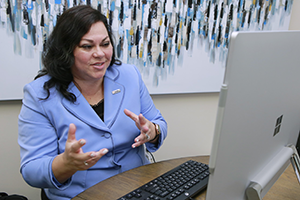
How to talk to your lender about debt

How to use debt to build wealth

7 steps to keep your personal and business finances separate

How to use credit cards wisely for a vacation budget

How to use your unexpected windfall to reach financial goals

For today's homebuyers, time and money are everything

Crypto + Homebuying: Impacts on the real estate market

Should you buy a house that’s still under construction?

House Hacks: How buying an investment property worked as my first home

Spring cleaning checklist for your home: 5 budget-boosting tasks

Your guide to breaking the rental cycle

Military homeownership: Your guide to resources, financing and more

Webinar: Uncover the cost: Building a home

How I did it: Bought a home without a 20 percent down payment

Home buying myths: Realities of owning a home

4 ways to free up your budget (and your life) with a smaller home

Money Moments: Tips for selling your home

How I did it: My house remodel

Are professional movers worth the cost?

Beyond the mortgage: Other costs for homeowners

10 ways to increase your home’s curb appeal

10 questions to ask when hiring a contractor

5 things to avoid that can devalue your home

Webinar: Uncover the cost: Home renovation

Improving your credit score: Truth and myths revealed

Credit: Do you understand it?

U.S. Bank asks: What do you know about credit?

I own two electric vehicles. Here’s what I’ve learned about buying and driving EVs.

How I did it: Deciding whether to buy an RV

Car shopping: Buying versus leasing your next vehicle

Take the stress out of buying your teen a car

How to winterize your vehicle

Questions to ask before buying a car

